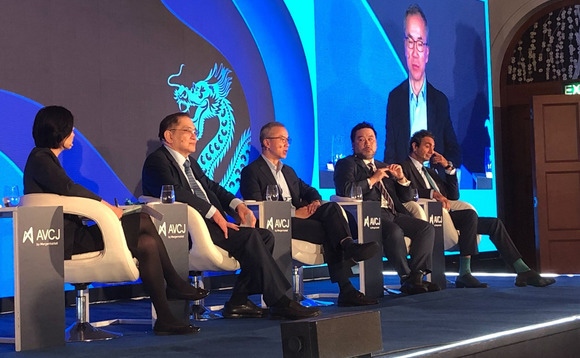
Uncertainty prompts deal financing discipline – AVCJ Forum

Large-cap buyout investors told the AVCJ Private Equity & Venture Forum they are hesitating to underwrite higher returns as debt terms tighten in cloudier market conditions.
They described a market where IRRs had declined from 25% to as low as 15% in recent years, a level that had become even less attractive as financing costs have climbed. Meanwhile, leverage multiples have fallen from as high as 7x to a current range of 3-4x.
"We're using less financing. To take financing at 11%, 9%, it doesn't make sense," said K.Y. Tang, founding chairman and a managing partner at Affinity Equity Partners.
Citing uncertainty about market conditions, Frank Tang, chairman and CEO of FountainVest Partners said his firm now rarely underwrites exit multiple expansion stories and has indeed begun testing scenarios where multiples shrink.
Puneet Bhatia, co-managing partner and head of India at TPG Capital Asia, added that although it's impossible to predict how exit multiples will change, it is viable to invest at a cyclical low with good instincts about where a business is going.
"While we never bake a multiple expansion into our calculus, what we do like to see is at what point in the cycle are you leaning into this opportunity and is there more of an upside bias or a downside bias," Bhatia said.
Lincoln Pan, a partner and co-head of private equity at PAG, said his firm wants investment professionals to prove out base-case scenarios where deals that are 100% equity funded or use only modest leverage are capable of achieving 12% IRR.
"In this market with high volatility, people who underwrite based on the hope that things are going to be okay, that's not going to turn out well," Pan said.
"If we fund this primarily with equity and a little bit of debt, will we get to that minimum floor of 12% for the downside case? Then talk to me about 25%. You don't get a ticket into the IC unless you clear that floor for the downside case."
Meanwhile, Affinity's Tang advised patience, noting that Asia's macro backdrop would likely improve over the course of a private equity holding period, allowing for opportunities to refinance deals if value creation efforts bear fruit.
He pointed to one existing portfolio company that Affinity acquired with low leverage, helped to perform well, and recapitalised three times. The firm is currently sitting on a 120% return.
"Don't worry too much about the lack of credit – you can play the game of start low, prove the thesis, get the confidence of the bank, and you can then recap. And with success, some of the portfolio companies in the next five years will go through not one recap, but two recaps, and you get back all your money, and you finally get to your 5x, 6x at a much lower interest rate," Tang added.
"So, there are many ways to play the leverage game and the financial market game. Just because it's all doom and gloom today, it's not the end of the world."
Latest News
Asian GPs slow implementation of ESG policies - survey
Asia-based private equity firms are assigning more dedicated resources to environment, social, and governance (ESG) programmes, but policy changes have slowed in the past 12 months, in part due to concerns raised internally and by LPs, according to a...
Singapore fintech start-up LXA gets $10m seed round
New Enterprise Associates (NEA) has led a USD 10m seed round for Singapore’s LXA, a financial technology start-up launched by a former Asia senior executive at The Blackstone Group.
India's InCred announces $60m round, claims unicorn status
Indian non-bank lender InCred Financial Services said it has received INR 5bn (USD 60m) at a valuation of at least USD 1bn from unnamed investors including “a global private equity fund.”
Insight leads $50m round for Australia's Roller
Insight Partners has led a USD 50m round for Australia’s Roller, a venue management software provider specializing in family fun parks.








